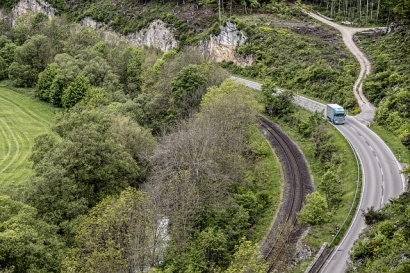
While the final objective is to create a net zero transport procurement, investment, and implementation project for vehicles, fuels, and related infrastructure, the first phase of the project will entail a feasibility study to understand the dynamics of road transport for CCHBC and to create net zero-aligned alternative solutions including the upstream and downstream infrastructure ecosystem necessary to decarbonize such a hard to abate area for CCHBC.
Ikigai, together with NVA, will carry out a pilot project involving the creation of multi-fuel hubs for the supply of green fuels (including electricity, biomethane and hydrogen) and an ecosystem for the supply of zero-impact vehicles.
The involvement of stakeholders (supply, demand, technology suppliers, financiers and governmental bodies) will be crucial given the number of challenges to decarbonisz the road transport sector in Italy.
Manuel Biella, Director of Italian Supply Chain, said, “We recognize the enormous challenges to achieve net zero emissions in the road transport sector, but we also know that the change is needed now, and we want to be leading the way. That’s why Coca-Cola HBC Italia is committed to supporting this project and our hauliers in their decarbonization journey and invest resources to lead the way and become an example for a sustainable logistics sector.”
Roberto Castiglioni, Co-founder and CEO of Ikigai Capital, said, “We don’t believe there is a silver bullet to decarbonize the transport sector; we believe we need a silver bucket, different solutions for different applications. That’s why we believe multi fuel hubs are the answer and we are eager to export our model to Italy with such a forward-thinking client like CCHBC. It’s all about understanding the real-life challenges through data analysis, having a holistic and technology-agnostic approach, while delivering value to all of the project stakeholders.”
Heavy-duty road transport is one of the so called ‘hard to abate sectors’. Carbon offsetting is under growing scrutiny as it should be only used as last resort to offset those areas that cannot be decarbonized. Other challenges that are making this sector one of the hardest to decarbonize include vehicle and fuel availability and cost but equally and downstream infrastructure network to support the refueling of vehicles.

